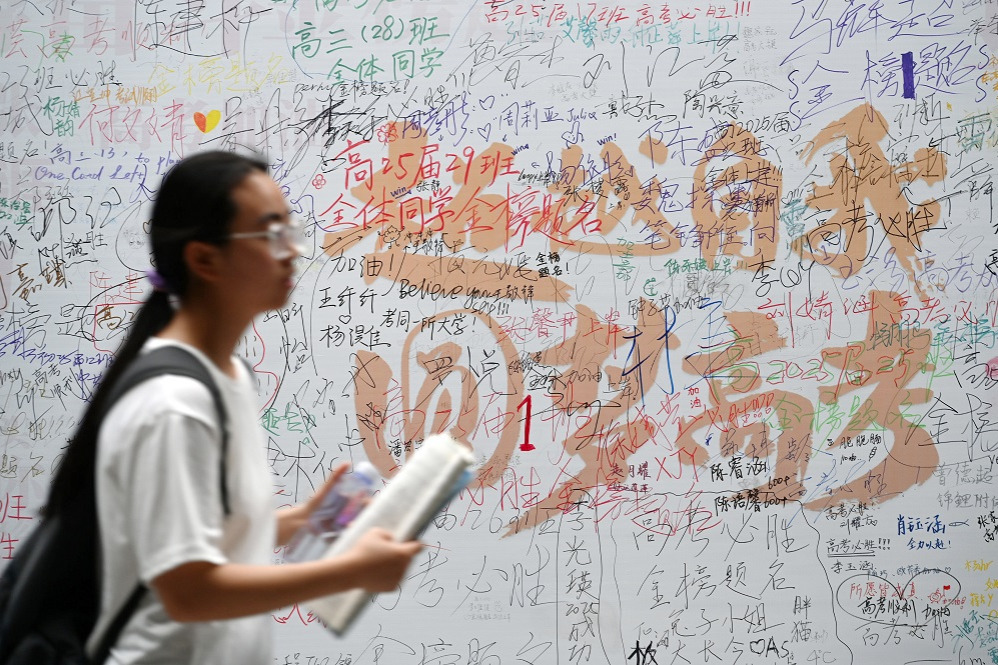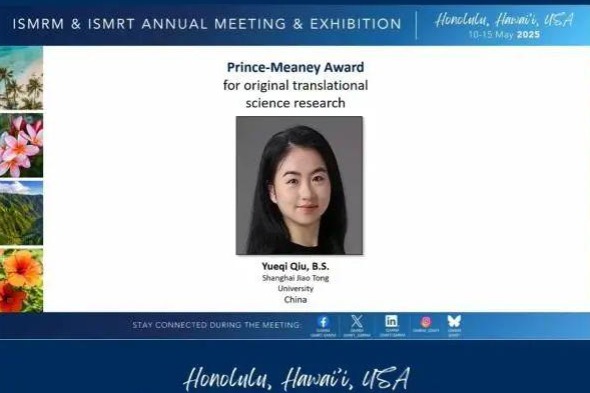Experts wary of AI-driven content tool
AIGC reduction services create gray industry as online demand grows

A gray industry offering "artificial intelligence-generated content" or AIGC rate reduction services has surged on Chinese online shopping platforms like Taobao, raising concerns during the ongoing graduation season.
These services, which claim to reduce the detectable AI-generated content in academic papers, have appeared by the hundreds, advertised with slogans like "manual modifications" and "24-hour online consultation".
Most products lack clear pricing labels, and vendors often insist on moving conversations and payments to WeChat, avoiding traceable transactions. Stores, many established for over five years — predating the widespread popularity of AIGC tools — are displaying numerous identical products, despite their business qualifications not including education.
One store, with over 50 daily sales for its AIGC rate reduction service, charged 32 yuan ($4.45) for a 5,000-word thesis. It boasted an "internal database capable of accurately matching and replacing AI-generated vocabulary".
Luo Xueming, a senior expert at the Guangdong Modern Urban Industrial Technology Research Institute, described AIGC rate reduction service as "a product of technological renovation and a pseudo-demand generated by administrative indicators".
He explained that the introduction of AIGC detection by universities to regulate AI use in theses has created this new demand. This service, along with ghostwriting and PowerPoint creation, now forms a complete gray industry chain, he said.
The "manual modification "offered by these services is essentially a re-use of AI, Luo noted, involving accessing academic databases, comparing content, and adjusting sentences and vocabulary based on algorithms. Such customized applications typically cost around 20,000 yuan.
"The oversight and management of this industry is indeed challenging, as it involves multiple authorities, including those in education, market supervision, internet security, and science and technology," said Luo, adding that the lack of clear academic ethical boundaries regarding AI-polishing, plagiarism and adaptation allows this service to grow "secretly and quickly".
The practice of switching communication platforms and payment modes, Luo explained, is designed to prevent consumers from tracing transactions and gathering evidence for future consumer rights protection claims.
Numerous customers have expressed dissatisfaction, citing difficulties in obtaining refunds. One woman reportedly paid 3,000 yuan to reduce AIGC rate of her thesis from 70 percent to the required 20 percent, only for the school's detection tool to show 60 percent. Unable to contact the service provider, she had to revise the thesis herself, according to news outlet Xinhuanghe. Complaints also include unprofessional language, fragmented sentences and inconsistent logic in the modified texts.
Chu Zhaohui, a researcher at the China National Academy of Educational Sciences, noted that the rapidly evolving nature of AI makes it difficult to establish a comprehensive legal framework. He suggested that a practical approach would be to strengthen academic ethics education among students.
Li Juan, an associate professor from Central South University's Law School, estimated that 60 to 80 percent of students have used AI tools to varying degrees in their theses this year, a significant surge compared to last year. This ranges from refining sentences to composing large portions of content.
She observed an improvement in the language quality of this year's theses but also pointed out instances of "AI hallucinations", where AI generated convincing but false statistics or legal cases. Despite this, she emphasized the importance of not letting subpar practices overshadow positive advancements.
Regarding AIGC rate reduction, she said she was not aware of the service. She added that the university does not consider the AIGC rate a mandatory criterion for approving theses; rather, it serves as a reference for supervisors, who ultimately make the final decision.
Her typical approach involves meticulously reviewing labeled areas for duplication and offering modification suggestions one by one, whether it is flagged for inadequate argumentation or errors in judgment caused by immature detection technology.
She said supervisors' responsibilities can help reduce the survival space for such industries.
limenghan@chinadaily.com.cn
- Experts wary of AI-driven content tool
- Experts wary of AI-driven content tool
- Rush to enroll in AI classes as demand for talent grows
- Musee d'Orsay masterpieces arrive in Shanghai
- China's heat alerts overlap with gaokao
- Shanghai Disney Resort to unveil new experiences for 9th-anniversary celebration






































